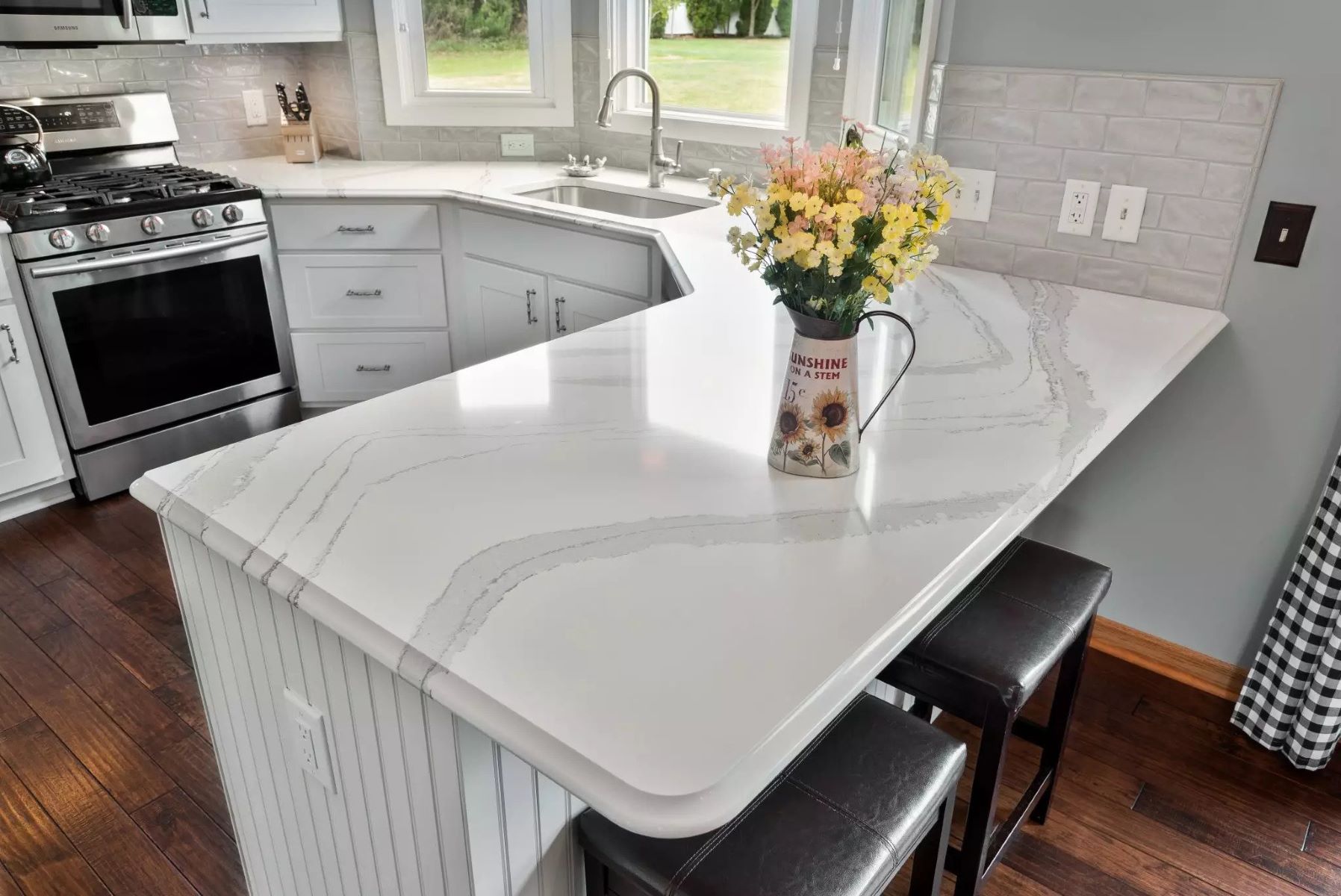

Articles
How To Buy Kitchen Countertops
Modified: January 18, 2024
Looking for articles on how to buy kitchen countertops? Find expert tips and advice to help you make the right choice for your kitchen renovation.
(Many of the links in this article redirect to a specific reviewed product. Your purchase of these products through affiliate links helps to generate commission for Storables.com, at no extra cost. Learn more)
Introduction
Welcome to the wonderful world of kitchen countertops! If you are considering renovating or upgrading your kitchen, one of the most important decisions you will make is choosing the right countertops. Kitchen countertops not only serve as a functional workspace in the heart of your home but also add aesthetic appeal to your space. With a wide variety of materials, styles, and designs available, finding the perfect countertops can be an exciting but overwhelming task.
Why are kitchen countertops so important, you may ask? Well, they are not only a place to prepare meals, but also a gathering spot for family and friends. Countertops are subjected to daily wear and tear, spills, heat, and sharp implements, so it is crucial to choose materials that are durable, easy to maintain, and visually appealing. They can also significantly impact the overall value of your home, making it a wise investment.
In this comprehensive guide, we will walk you through everything you need to know about buying kitchen countertops. Whether you are starting from scratch or looking to replace your existing countertops, we will cover the essential factors to consider, various types of countertop materials, how to determine your budget, popular brands and suppliers, measuring your kitchen countertop space, steps to follow when making a purchase, the importance of professional installation, and maintenance tips to keep your countertops looking their best.
By the end of this guide, you will be well-equipped with the knowledge and confidence to make an informed decision when choosing the perfect kitchen countertops for your home. So, let’s dive in and explore the diverse world of kitchen countertops!
Key Takeaways:
- Choose kitchen countertops that balance functionality, aesthetics, and durability to enhance your space and add value to your home. Consider factors like material, budget, and maintenance for a successful purchase.
- Research, compare, and consult with professionals to make informed decisions when buying and installing kitchen countertops. Prioritize quality, accurate measurements, and proper maintenance for long-lasting satisfaction.
Read more: Where To Buy Laminate Countertops
The Importance of Kitchen Countertops
Kitchen countertops play a vital role in the functionality and aesthetics of your kitchen. They serve as a workspace for meal preparation, a gathering spot for socializing, and a statement piece that enhances the overall design of your kitchen. Here are a few reasons why kitchen countertops are of utmost importance:
- Functionality: Kitchen countertops provide a dedicated space for various tasks, such as chopping vegetables, kneading dough, and placing hot pots and pans. A well-designed countertop layout can significantly improve your efficiency in the kitchen, making cooking and meal preparation a breeze.
- Visual Appeal: Countertops act as a focal point in your kitchen, contributing to its overall aesthetic appeal. Choosing a countertop material that complements your kitchen design and personal style can elevate the look and feel of the space.
- Increased Property Value: Investing in high-quality kitchen countertops can increase the value of your home. Potential buyers often look for updated and attractive kitchens, and countertops are one of the first things they notice. Upgrading your countertops can fetch a higher sale price and make your home more appealing to buyers.
- Durability: Kitchen countertops are subjected to constant use, spills, heat, and regular cleaning. Choosing a durable material ensures that your countertops can withstand the rigors of daily life and remain in excellent condition for years to come.
- Personalization: Countertops come in a wide array of colors, patterns, and finishes, allowing you to express your personal style and create a kitchen space that reflects your taste. From sleek and modern to warm and traditional, there is a countertop option to suit every design preference.
It is essential to prioritize both functionality and aesthetics when choosing kitchen countertops. Assess your lifestyle, cooking habits, and design preferences to determine the right balance. Consider factors such as maintenance requirements, durability, and cost to ensure that your chosen countertops meet your practical and aesthetic needs.
Factors to Consider Before Buying Kitchen Countertops
Choosing the perfect kitchen countertops involves careful consideration of various factors to ensure that they meet your needs, lifestyle, and budget. Here are some essential factors to keep in mind before making a purchase:
- Material: The material you choose for your countertops will have a significant impact on their durability, maintenance requirements, and appearance. Common materials include granite, quartz, marble, laminate, wood, and stainless steel. Each material has its own unique characteristics, so it is essential to research and understand the pros and cons of each before making a decision.
- Budget: Set a realistic budget for your kitchen countertops. Prices can vary significantly depending on the material, brand, size, and installation costs. It is important to strike a balance between quality and affordability. Remember to consider long-term value and durability when evaluating your budget.
- Lifestyle and Usage: Assess your lifestyle and how you will be using your kitchen countertops. Do you have a busy household with children and pets? Do you frequently entertain or cook elaborate meals? Consider factors such as stain resistance, heat resistance, scratch resistance, and maintenance requirements to choose a material that can withstand your daily activities.
- Design and Aesthetics: Your countertops should complement the overall design and style of your kitchen. Consider the color scheme, cabinetry, and flooring to ensure a cohesive look. Choose a material and finish that enhances the visual appeal of your kitchen and reflects your personal style.
- Maintenance: Different countertop materials require varying levels of maintenance. Some materials, like granite and quartz, are more resistant to stains and scratches and require minimal upkeep. Others, like marble and wood, may require sealing and regular maintenance to keep them in good condition. Assess your willingness to invest time and effort into maintaining your countertops.
- Resale Value: If you plan to sell your home in the future, consider the resale value of the countertops you choose. Opting for materials that are popular and timeless, like granite or quartz, can increase the appeal to potential buyers and potentially yield a higher return on investment.
- Environmental Impact: If environmental sustainability is important to you, research eco-friendly countertop materials. There are options available, such as recycled glass or bamboo, that offer a more environmentally conscious choice.
By carefully considering these factors, you can make an informed decision and choose kitchen countertops that align with your needs, style preferences, and budget. Remember to consult with professionals, visit showrooms, and request samples to get a better sense of the materials before making your final choice.
Types of Kitchen Countertop Materials
When it comes to kitchen countertops, there is a wide variety of materials to choose from. Each material has its own unique characteristics, advantages, and disadvantages. Understanding the different types of kitchen countertop materials will help you make an informed decision. Here are some commonly used countertop materials:
- Granite: Granite is a natural stone that is renowned for its beauty and durability. It is heat-resistant and can withstand heavy use. Each granite slab is unique, with its own patterns and colors. However, granite requires sealing and periodic maintenance to prevent staining.
- Quartz: Quartz countertops are engineered stone surfaces made from a combination of natural quartz and resin. They are highly durable, non-porous, and resistant to scratches, stains, and heat. Quartz countertops are available in a wide range of colors and patterns, making them a versatile choice for any kitchen.
- Marble: Marble countertops offer a timeless and elegant look. They are heat-resistant and great for baking purposes. However, marble is a porous stone and can stain easily. It requires regular sealing and maintenance to keep it looking its best.
- Laminate: Laminate countertops are affordable, versatile, and easy to maintain. They are made with a thin layer of plastic laminate adhered to a particleboard core. Laminate countertops are available in a variety of colors, patterns, and finishes. While they are more susceptible to scratches and heat damage compared to natural stone, they are a budget-friendly option.
- Wood: Wood countertops, often made from butcher block or hardwood, add warmth and a natural element to the kitchen. They are great for food prep and can be sanded and refinished to remove scratches. However, wood countertops require regular sealing and are susceptible to water damage and staining if not properly maintained.
- Stainless Steel: Stainless steel countertops are sleek, modern, and highly durable. They are resistant to heat, stains, and bacteria, making them a hygienic option for kitchens. While stainless steel is easy to clean, it can scratch easily and is susceptible to fingerprints and water spots.
- Concrete: Concrete countertops offer a unique and customizable option. They can be formed into various shapes, colors, and textures. Concrete is heat-resistant and durable, but it requires sealing to prevent staining and cracking.
- Tile: Tile countertops are available in various materials, including ceramic, porcelain, and natural stone. They offer versatility in design and are relatively affordable. However, tile countertops have grout lines that can be challenging to keep clean, and the tiles can chip or crack over time.
Each of these materials has its own set of pros and cons. Consider factors such as durability, maintenance, cost, and aesthetic appeal when choosing the right countertop material for your kitchen. Research and consult with professionals to find the material that best fits your needs and style preferences.
Pros and Cons of Each Kitchen Countertop Material
When choosing kitchen countertops, it is important to weigh the pros and cons of each material to ensure that it aligns with your needs and preferences. Here is a breakdown of the advantages and disadvantages of some popular countertop materials:
Read more: Where To Buy Corian Countertops
Granite:
Pros:
- Natural beauty with unique patterns and colors
- Durable and resistant to heat
- Increases property value
Cons:
- Requires regular sealing to prevent staining
- May be susceptible to chips or cracks
- Can be relatively expensive
Quartz:
Pros:
- Highly durable and resistant to scratches and stains
- Wide range of colors and patterns available
- Low maintenance with no sealing required
Cons:
- Not heat-resistant, so hot pans should not be placed directly on the surface
- May be more expensive than other materials
Marble:
Pros:
- Timeless and elegant appearance
- Heat-resistant, making it ideal for baking
Cons:
- Porous and prone to staining, requiring regular sealing
- Relatively expensive
- Can be easily scratched or etched by acidic substances
Laminate:
Pros:
- Cost-effective and budget-friendly
- Wide variety of colors and patterns available
- Easy to clean and maintain
Cons:
- Not as durable as natural stone and can be prone to scratches and burns
- Not resistant to heat or stains
Read more: Where To Buy Wooden Countertops
Wood:
Pros:
- Warm and natural appearance
- Great for food prep and can be sanded and refinished
Cons:
- Requires regular sealing and maintenance to prevent water damage and staining
- Prone to scratches and dents
Stainless Steel:
Pros:
- Sleek and modern appearance
- Highly durable and resistant to heat, stains, and bacteria
- Easy to clean and maintain
Cons:
- Prone to scratches and fingerprints
- May dent with heavy impact
Concrete:
Pros:
- Customizable in terms of shape, color, and texture
- Durable and heat-resistant
Cons:
- Requires sealing to prevent staining and cracking
- Can be prone to hairline cracks over time
Tile:
Pros:
- Wide range of design options available
- Relatively affordable
- Durable and easy to clean
Cons:
- Grout lines can be challenging to keep clean
- Tiles may chip or crack over time
Consider these pros and cons while keeping your specific needs and budget in mind. It is important to choose a countertop material that aligns with your lifestyle, design preferences, and maintenance capabilities to ensure a long-lasting and functional kitchen surface.
Read more: Where To Buy Soapstone Countertops
Determining Your Budget for Kitchen Countertops
Determining your budget for kitchen countertops is an essential step in the buying process. It helps you narrow down your options and ensures that you are making a financially sound decision. Here are some factors to consider when determining your budget:
- Material: The type of material you choose for your countertops will have a significant impact on the cost. Natural stones like granite and marble tend to be more expensive, while materials like laminate and tile are more budget-friendly options.
- Size and Layout: The size and layout of your kitchen will also influence the cost. Larger kitchens or those with complex countertop configurations will require more material and may involve additional labor costs for installation.
- Quality: The quality of the countertop material and the fabrication process can affect the price. Higher-quality materials may come at a premium, but they often offer better durability and longevity, making them a worthwhile investment.
- Customization: If you want customized features such as unique edge profiles, integrated sinks, or intricate designs, be prepared for additional costs. These customizations require specialized craftsmanship and can increase the overall price.
- Additional Costs: Don’t forget to budget for additional costs such as installation, delivery fees, taxes, and any necessary plumbing or electrical work. These costs should be factored into your overall budget to get an accurate estimate of the total expenses.
- Long-Term Value: While it can be tempting to choose the cheapest option upfront, consider the long-term value of the countertops. Investing in high-quality materials may offer better durability, resistance to stains and scratches, and can potentially increase the resale value of your home.
- Consider Alternatives: If your budget is limited, consider alternative countertop materials that offer a similar look and feel as more expensive options. For example, quartz countertops can mimic the appearance of natural stones like granite or marble at a lower cost.
- Financing Options: If your budget is tight, explore financing options available through countertop suppliers or home improvement stores. Installment plans or financing options can help make the cost more manageable and spread out over time.
It’s important to strike a balance between your desired aesthetics, functionality, and your budget. Research different countertop materials, compare prices from multiple suppliers, and request quotes to get a better understanding of the costs involved. Remember to prioritize durability and long-term value over upfront savings to ensure that your investment in kitchen countertops pays off in the long run.
Popular Brands and Suppliers of Kitchen Countertops
When it comes to purchasing kitchen countertops, it is important to choose a reputable brand or supplier that offers quality materials, a wide selection, and reliable customer service. Here are some popular brands and suppliers known for their exceptional kitchen countertops:
- Cambria: Cambria is a leading manufacturer of quartz countertops. They offer a vast selection of colors and patterns, all made with high-quality materials. Cambria countertops are known for their durability, beauty, and resistance to stains and scratches.
- Caesarstone: Caesarstone has established itself as a prominent brand in the quartz countertop industry. They offer a wide range of designs and finishes, including marble-like patterns. Caesarstone countertops are renowned for their durability, low maintenance, and versatility.
- Silestone: Silestone is another well-known brand that specializes in quartz countertops. They offer an extensive range of colors and finishes, ensuring there is something to suit every kitchen style. Silestone countertops are known for their durability, non-porous surface, and resistance to stains and bacterial growth.
- Granite Transformations: Granite Transformations is a supplier that specializes in engineered stone countertops. They offer a unique collection of granite, quartz, and recycled glass countertops. Their products are known for their durability, low maintenance, and eco-friendly features.
- Wilsonart: Wilsonart is a reputable brand that offers a wide range of laminate countertops. They provide a vast selection of colors, patterns, and finishes to suit various design preferences. Wilsonart countertops are known for their affordability, versatility, and ease of maintenance.
- Formica: Formica is a well-recognized brand in the laminate countertop industry. They offer a diverse range of designs, including popular stone-like patterns. Formica countertops are known for their affordability, durability, and easy installation.
- Butcher Block Co.: If you’re looking for wood countertops, Butcher Block Co. is a reputable supplier. They offer a variety of wood species and customizable options. Butcher Block Co. countertops are known for their warm aesthetic, durability, and functionality.
- Home Depot: Home Depot is a popular home improvement retailer that offers a wide range of kitchen countertops. They carry reputable brands such as Hampton Bay, Hardwood Reflections, and MSI. Home Depot provides a combination of affordability, quality, and variety.
- Lowe’s: Lowe’s is another major home improvement retailer that offers a diverse selection of kitchen countertops. They carry well-known brands such as allen + roth, VT Dimensions, and FORMICA. Lowe’s is known for its competitive pricing, strong customer service, and extensive product range.
- Local Countertop Fabricators: Don’t forget to explore local countertop fabricators in your area. They often provide personalized services, custom designs, and may offer unique materials not available through larger brands or suppliers. Supporting local businesses can also result in a more personalized and tailored experience.
Before making a final decision, it is recommended to visit showrooms, view samples, and read reviews to ensure the quality and reliability of the brand or supplier. Additionally, consult with professionals who can provide expert guidance and help you make an informed choice based on your specific needs and budget.
How to Measure Your Kitchen Countertop Space
Accurate measurements are crucial when purchasing kitchen countertops to ensure a proper fit and minimize the chances of costly mistakes. Here is a step-by-step guide on how to measure your kitchen countertop space:
- Gather your tools: Before you begin measuring, gather the necessary tools, including a tape measure, pencil, paper, and possibly a digital camera or smartphone to capture reference photos.
- Clean and declutter: Clear off your existing countertops and remove any objects that may obstruct the measuring process. This will ensure accurate measurements and give you a clear view of the countertop surface.
- Start with the primary run: Begin by measuring the length of the primary run, which is the longest continuous countertop surface. Use the tape measure to measure from one end of the countertop to the other, following the wall’s contours.
- Record the measurement: Write down the measurement you obtained for the primary run. It’s best to write it down in inches, as most countertop suppliers and fabricators use this unit of measurement.
- Measure the depth: Measure the depth or width of the countertops by measuring from the front edge all the way to the backsplash or wall. Be sure to measure at several points along the countertop’s length, as walls are not always perfectly straight.
- Record the depth measurements: Take note of the depth measurements at various points along the countertop’s length. It is essential to record each measurement individually rather than averaging them, as this will allow for a more accurate estimation of material needed.
- Account for overhangs and edges: If you have any overhangs or decorative edges on your countertops, measure their dimensions and record them separately from the main countertop measurements. This will help ensure the fabrication is tailored to your specific design choices.
- Measure additional sections: If your kitchen has multiple countertop sections, repeat the measuring process for each section individually. Pay attention to any corners, angles, or irregular shapes that may require additional measurements and adjustments.
- Photograph and document: As an additional reference, consider taking photographs of your existing countertops and noting any specific features or considerations that may affect the installation or design choices.
- Consult with a professional: If you are uncertain about taking measurements or have complex countertop configurations, it may be beneficial to consult with a professional installer or countertop supplier. They can guide you through the measurement process to ensure accuracy.
Remember, precision is key when measuring your kitchen countertop space. Taking accurate measurements will help you avoid unnecessary costs, delays, and potential mistakes. If in doubt, always seek professional assistance to ensure a seamless and successful countertop installation.
Steps to Follow When Buying Kitchen Countertops
Buying kitchen countertops is an exciting process, but it requires careful planning and consideration. To help you navigate through the buying process, here are the essential steps to follow when purchasing kitchen countertops:
- Determine your needs: Evaluate your lifestyle, cooking habits, and design preferences. Consider factors such as durability, maintenance, aesthetics, and budget to determine the right countertops for your kitchen.
- Research countertop materials: Familiarize yourself with the various types of countertop materials available, such as granite, quartz, marble, laminate, and wood. Research the pros and cons of each material and determine which ones align with your needs and preferences.
- Set a budget: Determine your budget for kitchen countertops. Consider not only the cost of the materials but also the installation, additional fees, and any customization or personalization you may desire. Be realistic about your budget to ensure you find an option that suits both your needs and financial constraints.
- Visit showrooms and suppliers: Explore showrooms and visit countertop suppliers to see the materials in person. This will allow you to feel the textures, examine the colors and patterns, and better envision how they will look in your kitchen. Take note of any specific materials or designs that catch your eye.
- Obtain quotes: Request quotes from different suppliers and fabricators. Provide them with accurate measurements and specifications so they can provide you with an estimate of the cost. Be sure to inquire about any additional fees, warranties, and installation timelines.
- Compare and negotiate: Compare the quotes you receive from different suppliers. Take into consideration the quality, reputation, warranty, and customer service along with the price. If needed, negotiate to get the best possible deal without compromising on the quality of the product or the installation.
- Finalize your decision: Once you have gathered all the necessary information and found a supplier that meets your requirements, make a final decision on the materials, colors, and finishes. Discuss any customization options, such as edge profiles or integrated sinks, and confirm the details of the purchase.
- Schedule the installation: Coordinate with the supplier or fabricator to schedule the installation of your kitchen countertops. Discuss the timeline, delivery arrangements, and any additional requirements or preparations needed on your end.
- Prepare your space: Clear off your existing countertops and remove any items that may hinder the installation process. Make sure the installation area is easily accessible and that there are no obstructions that could cause delays or complications.
- Perform a final inspection: Once the countertops are installed, carefully inspect the workmanship, ensuring that everything is as expected. Measure and double-check that the dimensions, edge treatments, and other details match your specifications.
- Maintain and care for your countertops: Follow the manufacturer’s instructions and best practices for cleaning and maintaining your countertops. Use appropriate cleaning products and avoid harsh chemicals or abrasive cleaners that could damage the surface. Regularly inspect and address any issues or repairs to prolong the lifespan of your countertops.
Following these steps will help ensure a smooth and successful process of purchasing and installing your new kitchen countertops. Remember to take your time, ask questions, and seek professional advice when necessary to make informed decisions and create a stunning and functional kitchen space.
Read more: Where To Buy Formica Countertops
Hiring a Professional Installer for Kitchen Countertops
When purchasing new kitchen countertops, hiring a professional installer is crucial for a successful and seamless installation process. A skilled installer will not only ensure that your countertops are properly fitted but also minimize the chances of damage and potential issues. Here are some key steps to consider when hiring a professional installer:
- Research and gather recommendations: Start by researching reputable countertop installers in your area. Ask for recommendations from friends, family, or your countertop supplier. Read online reviews and check the installer’s portfolio or gallery to assess the quality of their work.
- Verify their credentials: Ensure that the installer you choose is licensed and insured. A licensed professional demonstrates their competence and adherence to industry standards. Insurance coverage protects you from any potential accidents or damage that may occur during the installation process.
- Request references: Ask the installer for references of past clients or projects. Contact these references to inquire about their experience working with the installer. Ask about the quality of work, professionalism, punctuality, and overall satisfaction with the installation process.
- Obtain multiple quotes: Request quotes from several professional installers for an accurate comparison. The quotes should outline the scope of work, materials, estimated timeline, and pricing. Be wary of extremely low or significantly high quotes compared to others, as they may indicate potential issues.
- Ask about experience and expertise: Inquire about the installer’s experience in working with the specific countertop material you have chosen. Different materials may require different installation techniques and specialized knowledge. Ensure that the installer has the expertise to handle your chosen material.
- Discuss the installation process: Have a detailed discussion with the installer about the installation process. Inquire about how they will handle challenges such as irregularities in the kitchen layout, potential plumbing or electrical adjustments, edge treatments, and any customization you require.
- Review the contract: Once you have selected an installer, carefully review the contract before signing. Ensure that all the terms, pricing, timelines, and warranties are clearly stated. Seek clarification on any ambiguous clauses or uncertainties before proceeding.
- Communicate your expectations: Clearly communicate your expectations to the installer. Discuss any specific concerns, details, or requirements you have for the installation. This will help ensure that your vision aligns with the installer’s plans, reducing the chances of misunderstandings or discrepancies.
- Prepare the installation space: Prior to the installation date, prepare the space by clearing out the area around the countertops and removing any obstacles that may hinder the installation process. Ensure that the workspace is clean and accessible for the installer.
- Supervise the installation: While it is not necessary to hover over the installer, it is advisable to be present during the installation to address any questions or concerns promptly. Communicate with the installer throughout the process and perform a final walkthrough to ensure everything meets your expectations.
Hiring a professional installer for your kitchen countertops ensures a high-quality and efficient installation. Take the time to research, gather recommendations, and thoroughly evaluate the installer’s credentials and experience. Clear communication, attention to detail, and proper supervision will help you achieve the kitchen of your dreams with flawless countertop installation.
When buying kitchen countertops, consider the material’s durability, maintenance requirements, and overall aesthetic to ensure it meets your needs and complements your kitchen design.
Maintaining and Cleaning Your Kitchen Countertops
Maintaining and cleaning your kitchen countertops is essential to keep them looking their best and prolong their lifespan. Different countertop materials have varying maintenance requirements, so it’s important to follow the specific care instructions provided by the manufacturer. Here are some general tips for maintaining and cleaning your kitchen countertops:
- Read the manufacturer’s guidelines: Familiarize yourself with the care and maintenance instructions provided by the manufacturer for your specific countertop material. These guidelines will offer valuable insights on how to clean and maintain your countertops properly.
- Wipe up spills immediately: Accidental spills, especially those containing acidic or staining substances like wine or tomato sauce, should be wiped up promptly. Use a soft cloth or paper towel to prevent the liquid from seeping into the countertop and causing stains.
- Use gentle cleaning agents: Avoid using harsh or abrasive cleaning products that can damage the surface of your countertops. Instead, opt for mild, non-abrasive cleaners recommended for your specific countertop material. Always test a small, inconspicuous area before applying any cleaner to the entire surface.
- Avoid cutting directly on the surface: Although many countertops are scratch-resistant, it’s best to use a cutting board or protective mat when chopping or slicing food. This will prevent unnecessary scratches or damage to the surface.
- Use heat protection: Protect your countertops from hot pans, pots, and appliances by using trivets, hot pads, or heat-resistant mats. While some countertops can withstand heat, others may be prone to damage from extreme temperatures.
- Avoid using abrasive tools or materials: Scrub brushes, steel wool, or scouring pads can scratch the surface of your countertops. Stick to soft cloths, sponges, or non-abrasive cleaning tools to maintain the integrity of the material.
- Regularly clean with mild soap and water: For day-to-day cleaning, a solution of mild dish soap and warm water is usually sufficient. Use a soft cloth or sponge to gently clean the surface, then rinse thoroughly to remove any soap residue. Dry the countertop with a clean, lint-free cloth to prevent water spots.
- Follow specific maintenance requirements: Some countertop materials, such as granite or marble, may require periodic sealing to protect against staining. Follow the recommended sealing schedule provided by the manufacturer, and use a high-quality, food-safe sealant for best results.
- Avoid harsh chemicals and acidic substances: Harsh chemicals, such as bleach, ammonia, or abrasive cleaners, can damage the surface of your countertops. Similarly, acidic substances like vinegar or lemon juice can cause etching or discoloration on certain materials. Always refer to the manufacturer’s guidelines for recommended cleaning agents.
- Address stains and scratches promptly: If you notice any stains or scratches on your countertops, address them as soon as possible. Follow the specific stain removal instructions for your countertop material to prevent permanent damage. For deeper scratches or more significant issues, consult a professional for repair or refinishing.
Maintaining and cleaning your kitchen countertops regularly will help preserve their appearance and longevity. By following these general guidelines and adhering to the specific care instructions provided by the manufacturer, you can ensure that your countertops remain beautiful and functional for years to come.
Conclusion
Congratulations on reaching the end of this comprehensive guide to buying kitchen countertops! We’ve covered everything you need to know, from understanding the importance of kitchen countertops to the process of maintaining and cleaning them. Let’s recap the key points:
Kitchen countertops are not only functional workspaces but also important design elements that enhance the overall aesthetic appeal of your kitchen. They play a crucial role in meal preparation, socializing, and adding value to your home.
Before buying kitchen countertops, it’s important to consider factors such as material, budget, lifestyle, design preferences, and maintenance requirements. Familiarize yourself with popular countertop materials like granite, quartz, marble, laminate, wood, and stainless steel to make an informed decision.
Determining your budget is a critical step, as it will guide your choices and ensure that you find countertops that balance quality and affordability. Take advantage of showrooms, suppliers, and online resources to explore different brands and options.
Choosing a reputable brand or supplier is essential to the overall success of your countertop purchase. Research their credentials, read reviews, and request references to ensure you are working with a reliable professional.
Accurate measurements are key to a proper fit, so follow the steps provided for measuring your kitchen countertop space. Hiring a professional installer is recommended to ensure precise installation and minimize any potential issues.
Once your countertops are installed, follow the manufacturer’s guidelines for cleaning and maintenance to keep them in optimal condition. Take care to wipe up spills immediately, use gentle cleaning agents, and protect the surface from hot objects and abrasive materials.
In conclusion, choosing the right kitchen countertops involves careful consideration of various factors. By doing your research, consulting with professionals, and following the proper maintenance practices, you can create a functional, beautiful, and long-lasting kitchen that meets your needs and enhances your home.
We hope this guide has provided valuable insights and guidance for your countertop buying journey. Now go ahead and transform your kitchen into the heart of your home with the perfect countertops!
Frequently Asked Questions about How To Buy Kitchen Countertops
Was this page helpful?
At Storables.com, we guarantee accurate and reliable information. Our content, validated by Expert Board Contributors, is crafted following stringent Editorial Policies. We're committed to providing you with well-researched, expert-backed insights for all your informational needs.
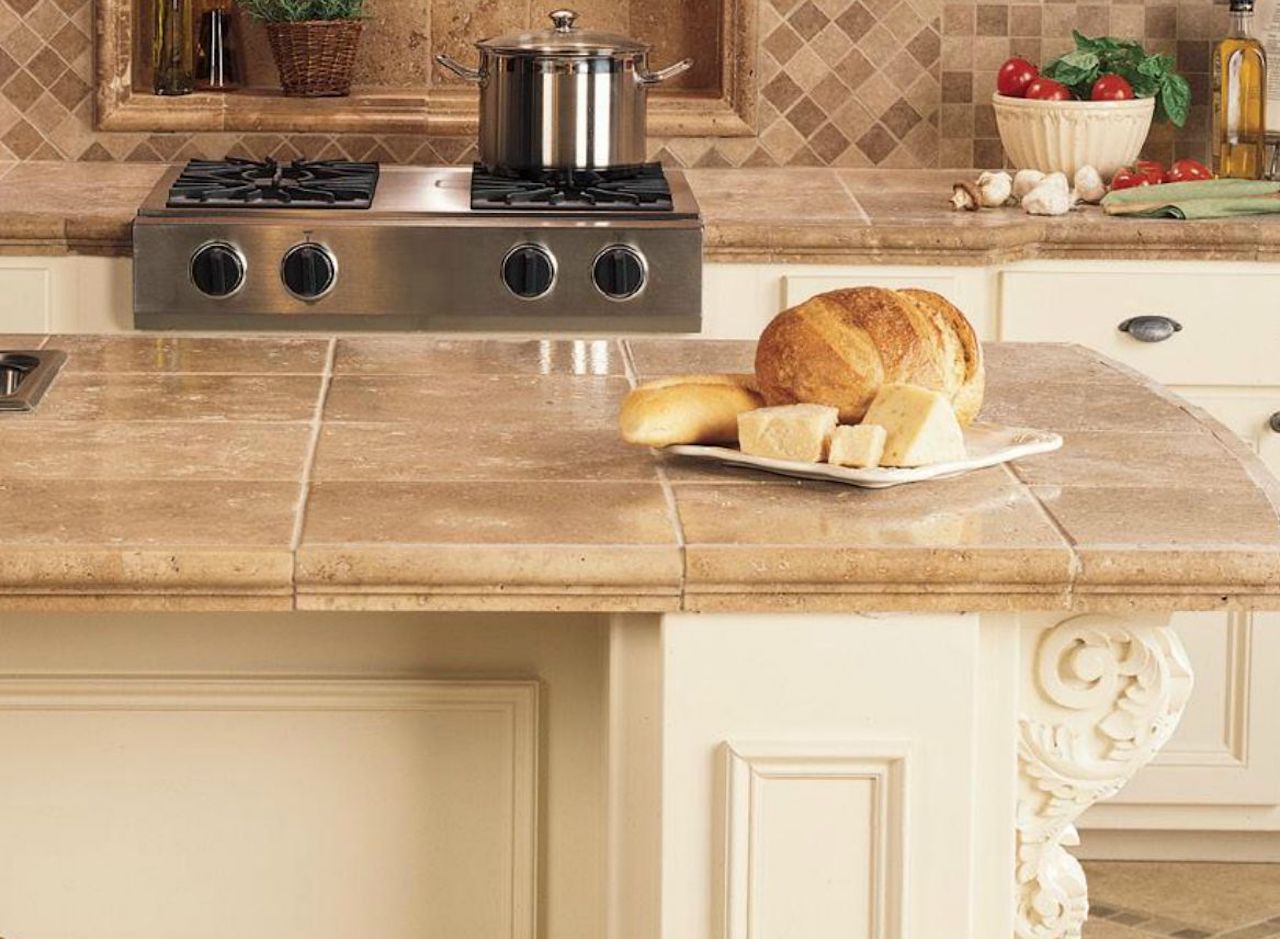
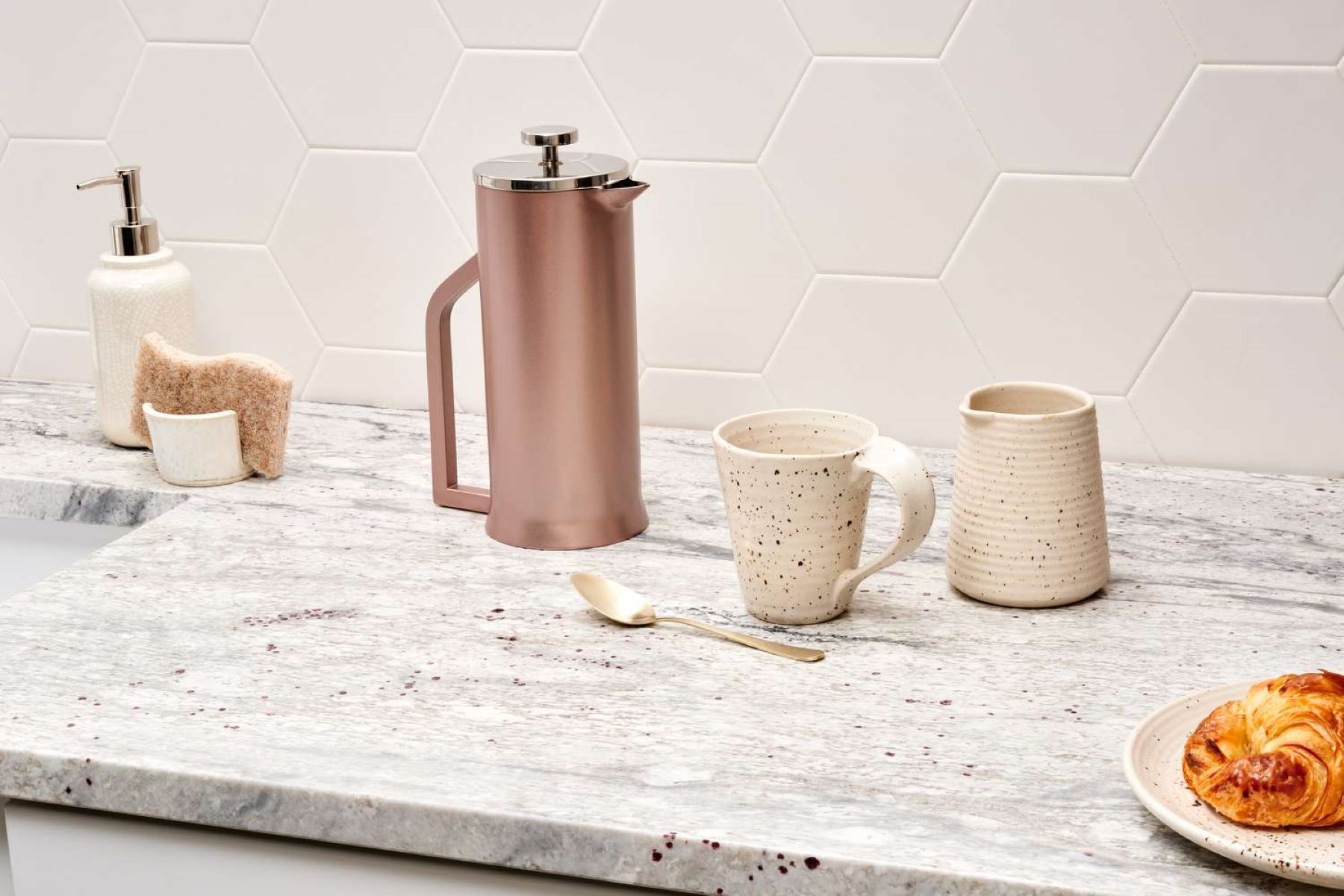
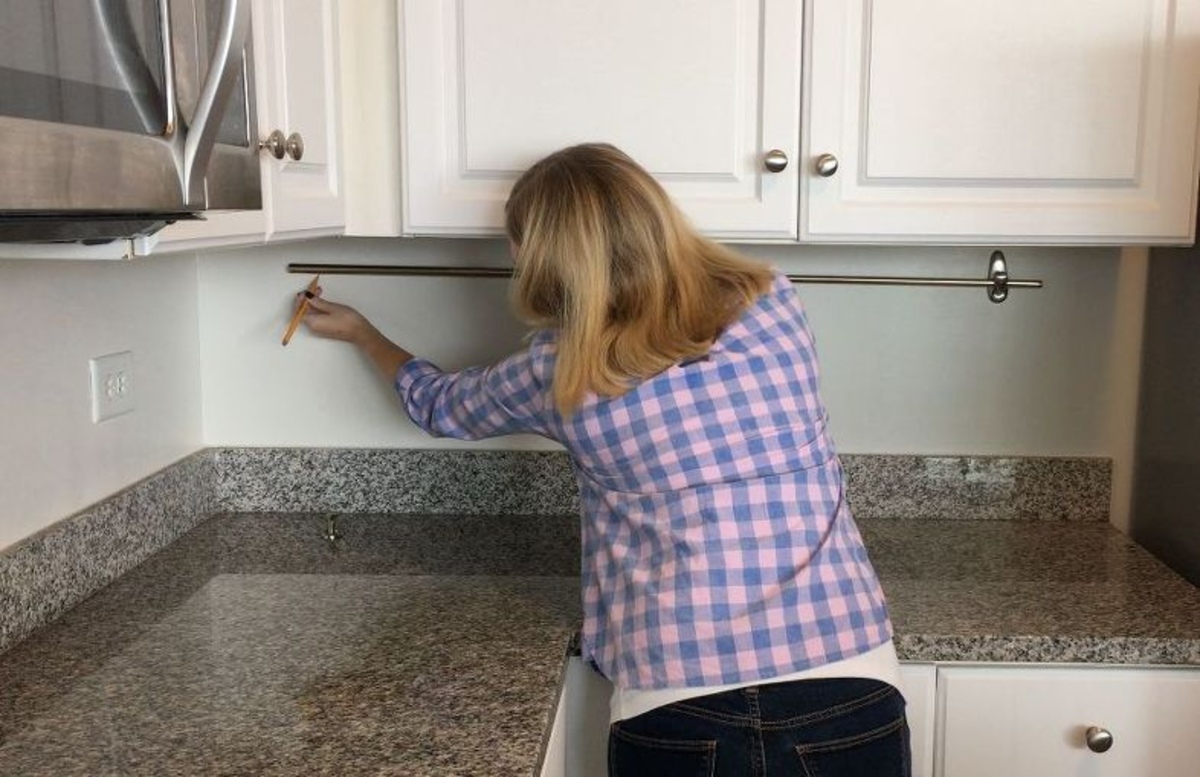
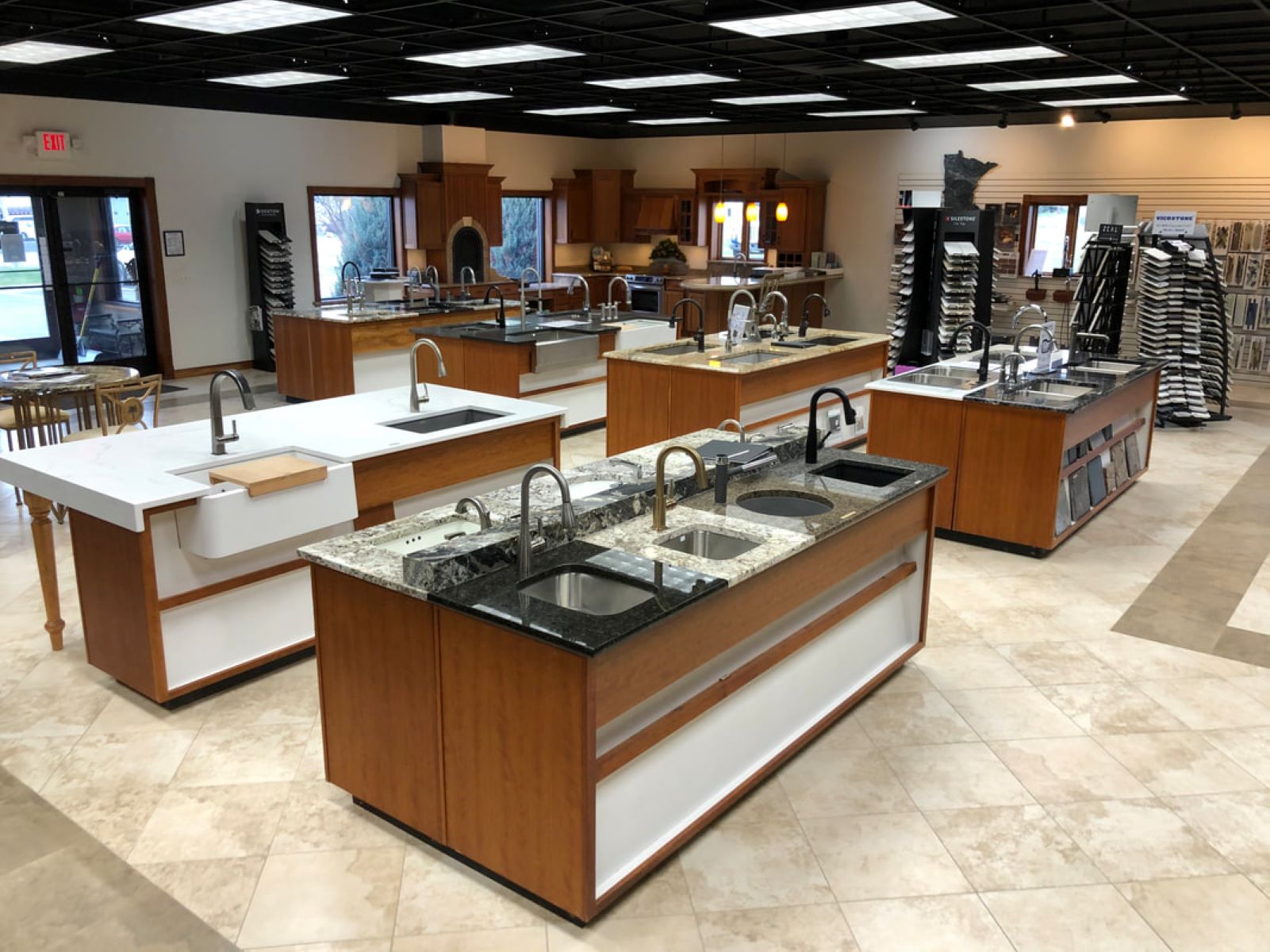
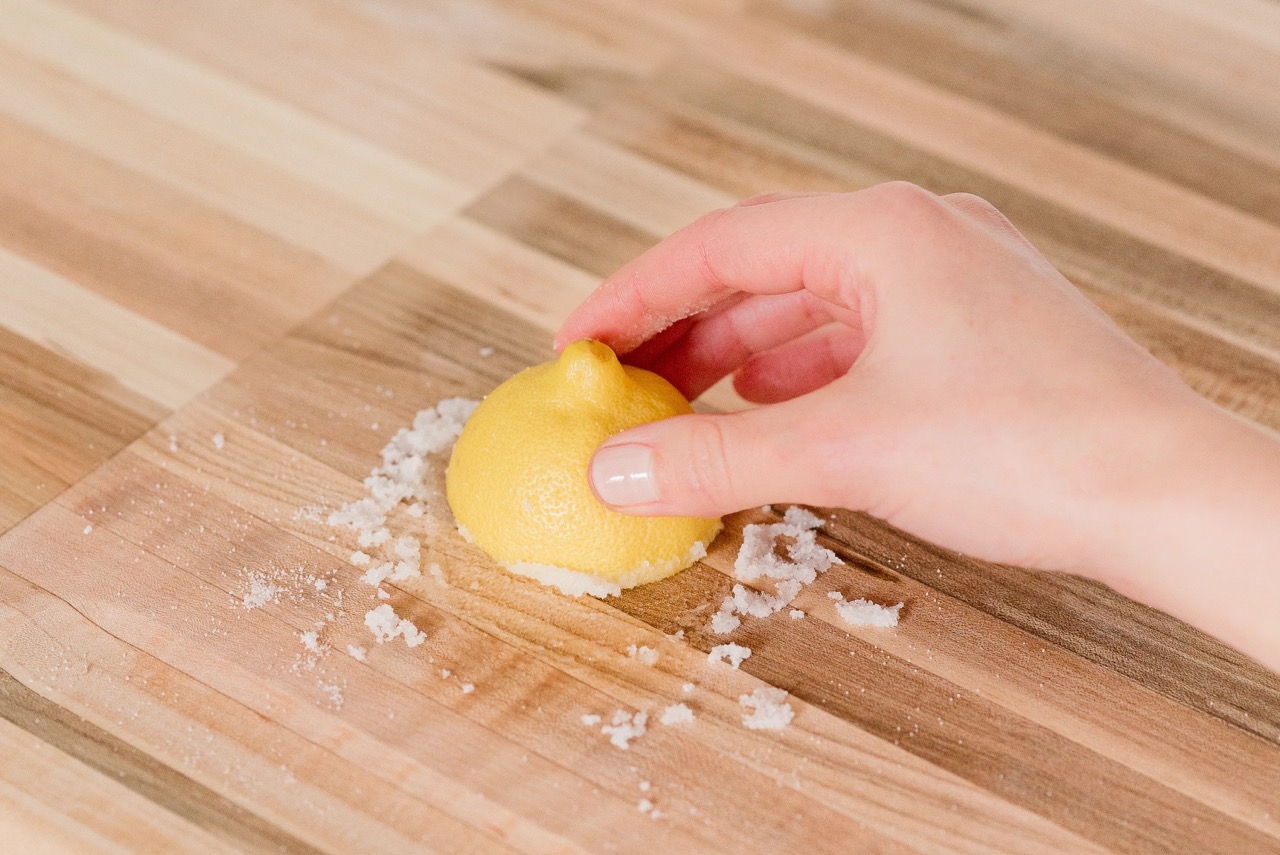
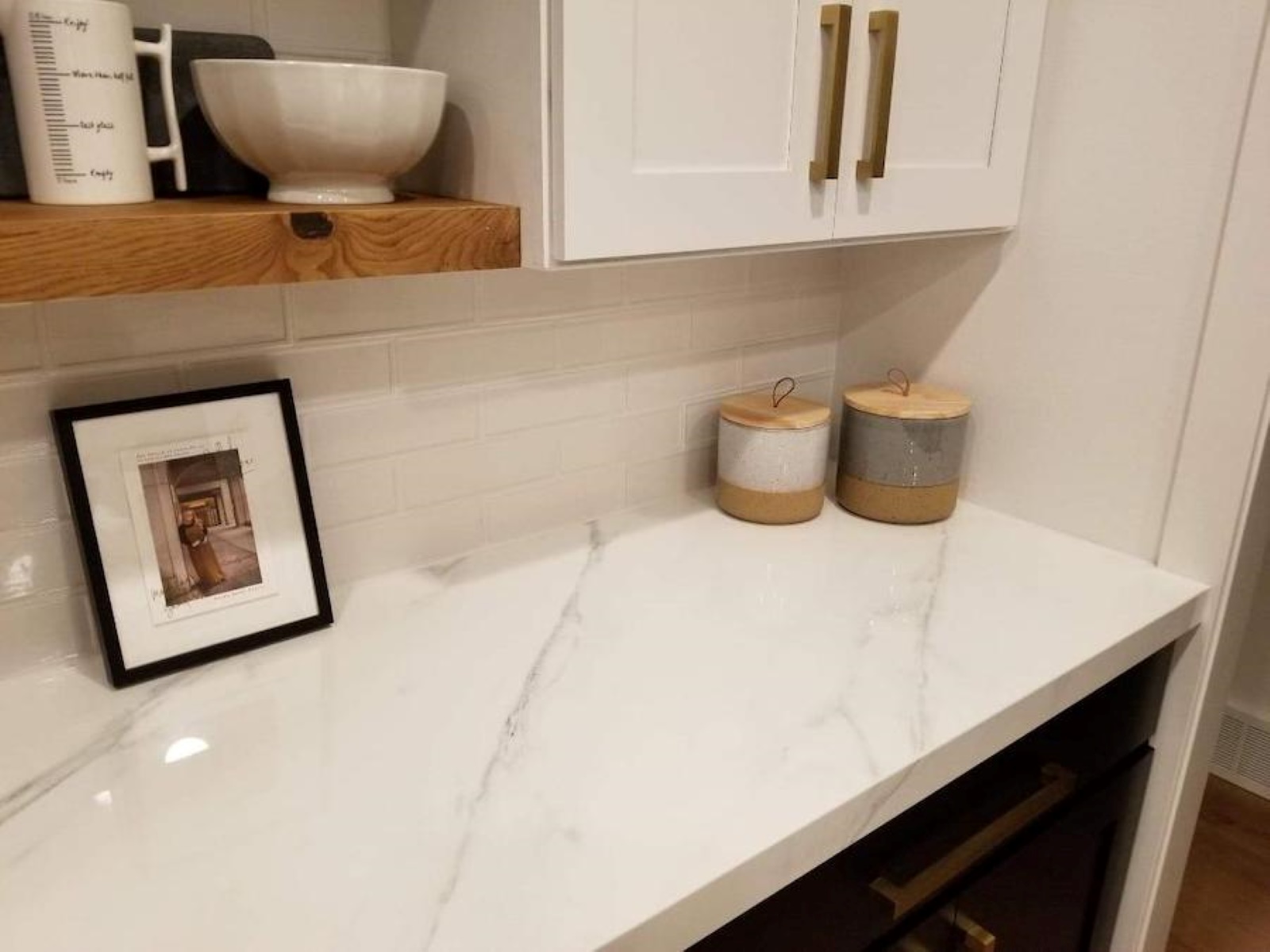
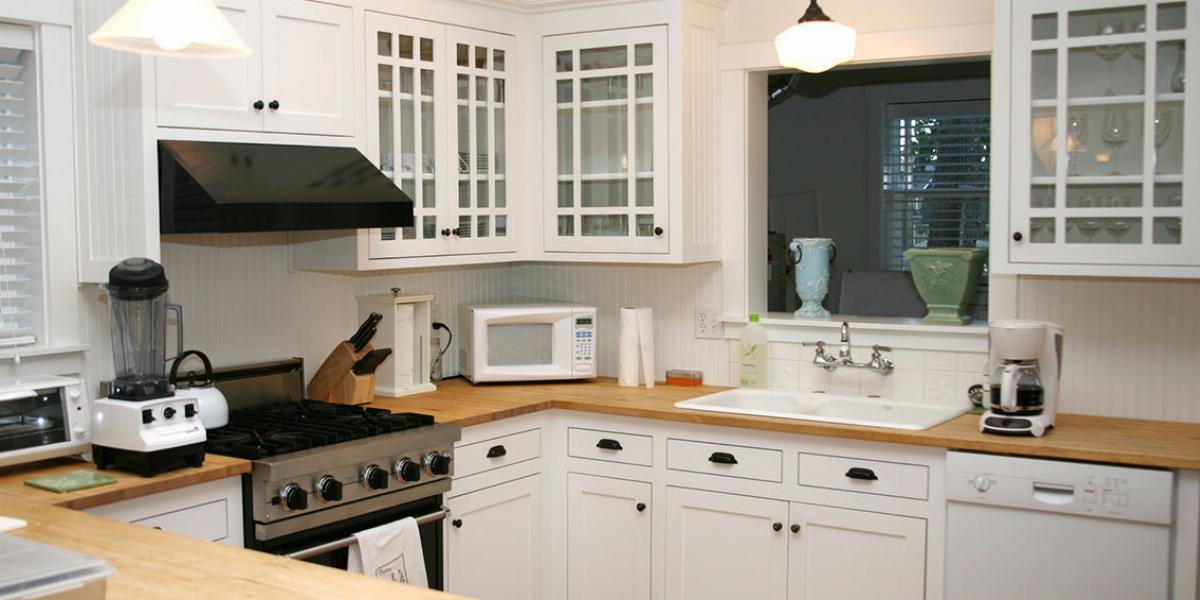
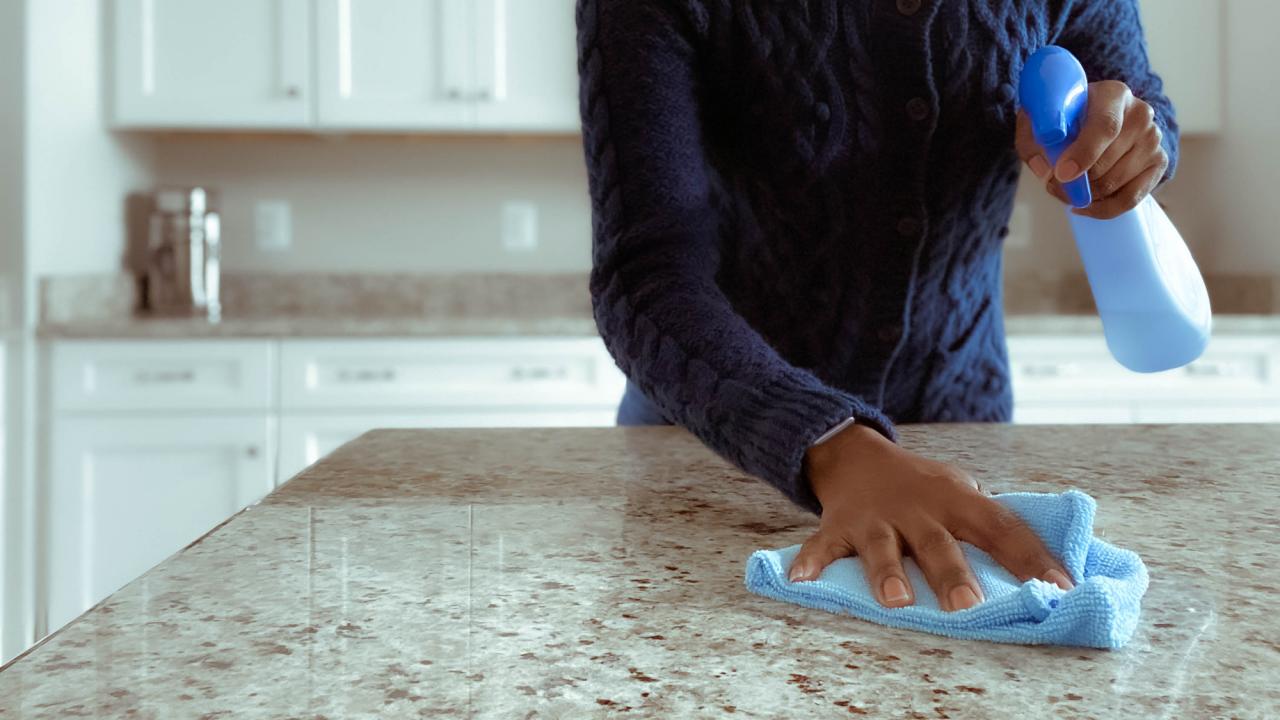
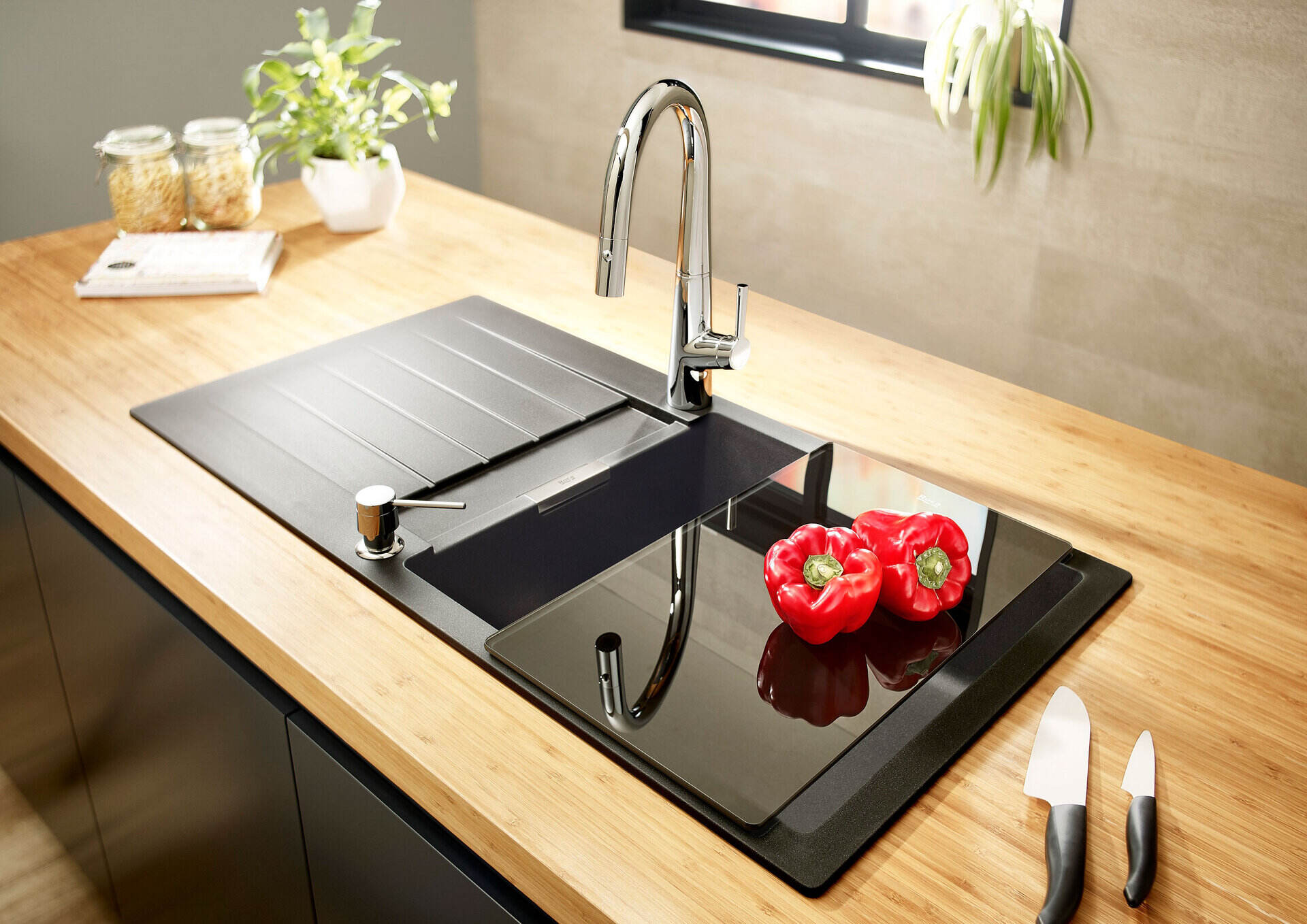
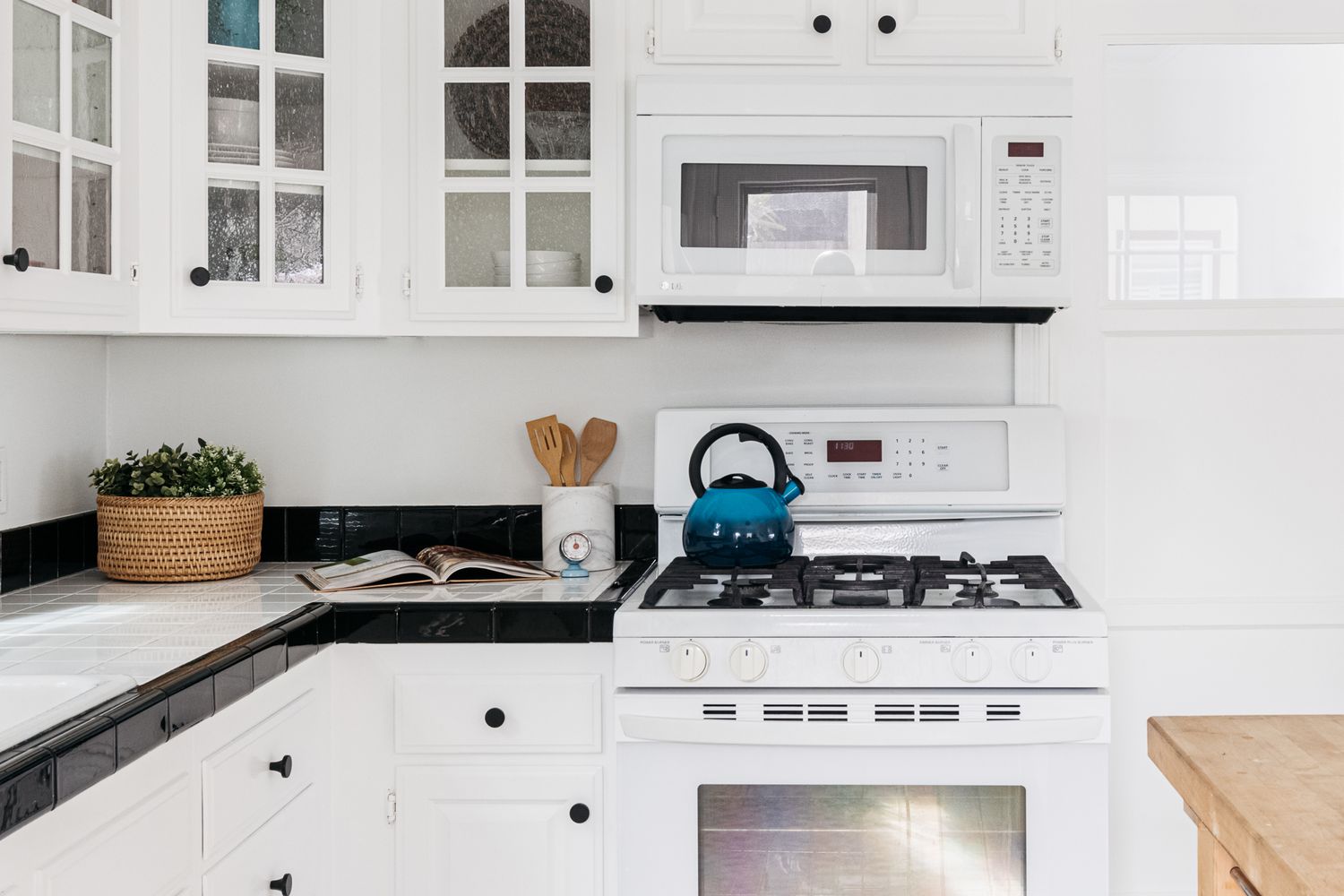
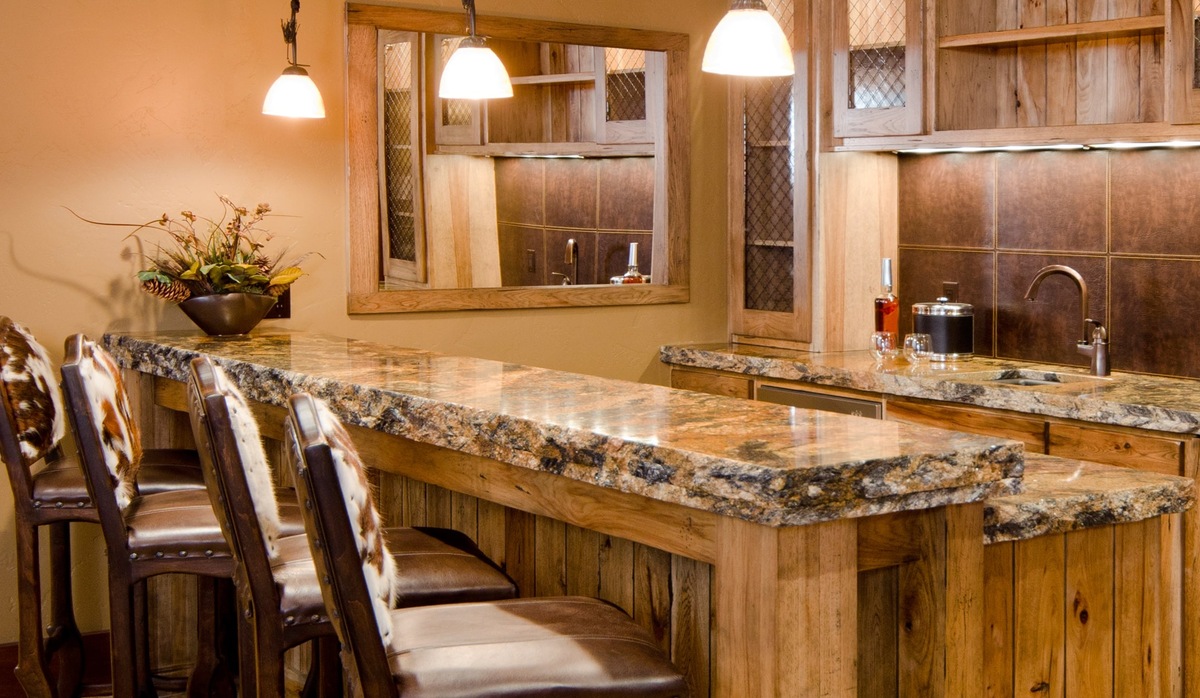

0 thoughts on “How To Buy Kitchen Countertops”